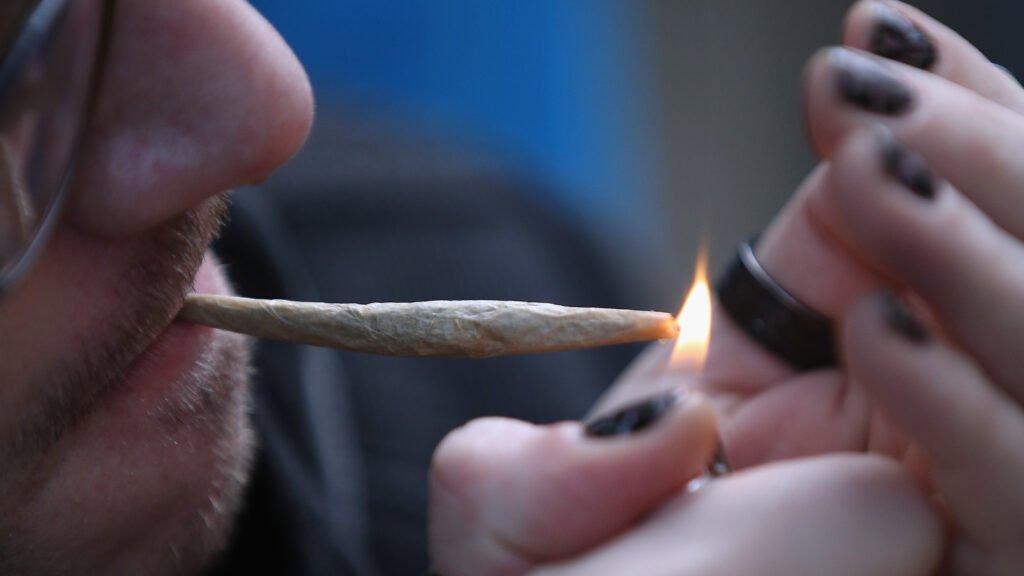Smoking marijuana has been found to lead to a significant decrease in short-term alcohol consumption, according to a groundbreaking study that delves into the ongoing debate surrounding the “California sober” lifestyle.
The study, published recently, revealed that individuals who smoked cannabis consumed between 19% and 27% less alcohol after their marijuana use compared to those who smoked a placebo. This research marks the first randomized controlled trial examining the impact of marijuana use on alcohol intake.
Lead author of the study, Jane Metrik, a psychologist and researcher at Brown University, cautioned against interpreting these findings as a green light for substituting marijuana for alcohol, especially for individuals dealing with alcohol use disorder or seeking to reduce their drinking habits. She emphasized that while the controlled conditions of the study showed a reduction in alcohol consumption after smoking cannabis, the long-term effects on alcohol-related harms remain unknown.
The study sheds light on the growing trend of individuals in the United States turning to marijuana as an alternative to alcohol, a practice commonly known as “California sober.” This approach has sparked controversy within recovery and public health circles, as experts weigh the risks and benefits of using cannabis as a substitute for alcohol. While alcohol consumption is linked to a significant number of deaths annually, cannabis use carries its own set of risks, including higher overall mortality rates and an increased susceptibility to certain psychiatric disorders.
While the study presents promising short-term results, addiction researcher and Harvard University psychiatry professor, John Kelly, cautioned that the potential benefits of swapping one substance for another may not translate into long-term success. He highlighted three common outcomes for individuals attempting to replace alcohol with marijuana: developing a harmful addiction to cannabis, finding cannabis unsatisfying and returning to alcohol, or engaging in heavy marijuana use alongside alcohol consumption, resulting in even more harmful behavior.
The study specifically focused on individuals who engaged in heavy episodic drinking and used cannabis but were not seeking treatment for substance use disorders. Participants were provided with marijuana and offered alcoholic beverages, with results showing that those who smoked cannabis with a higher THC concentration consumed less alcohol and waited longer before drinking compared to those who smoked a placebo.
While the study was funded by the National Institute on Alcohol Abuse and Alcoholism and utilized marijuana from the National Institute on Drug Abuse, the researchers emphasized that cannabis use in conjunction with alcohol consumption can lead to negative outcomes, such as risky behavior and psychiatric risks. However, some studies suggest that marijuana use may lead to lower overall alcohol consumption, especially among heavy cannabis users or when cannabis is used before alcohol.
Future research will explore the long-term effects of cannabis on alcohol consumption, as well as investigate the use of CBD as a potential mechanism for reducing alcohol intake. Metrik emphasized the need for further studies to examine the extended impacts of cannabis use on alcohol consumption.
In conclusion, while the study provides valuable insights into the relationship between marijuana use and alcohol consumption, it is essential to approach the topic with caution and continue research to fully understand the implications of using cannabis as a substitute for alcohol. The findings set the stage for further exploration into this complex issue and the potential role of cannabis in influencing drinking behaviors over time.


